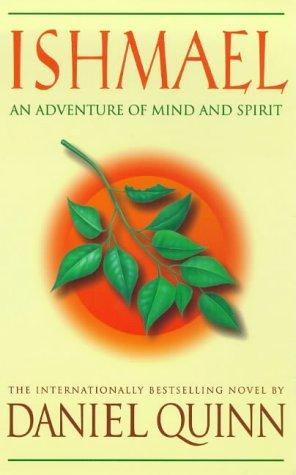An Inspiring Book I Just Read: Ishmael by Daniel Quinn
A new business colleague read an advance copy of my new book, Your Mind Is What Your Brain Does for a Living, and sent me a sweet note along with a copy of his favorite book, Ishmael by Daniel Quinn, which he said he thought I would like. I was intrigued and then found the book so fascinating that I read it in two days.
It begins with the line, “The first time I read the ad I choked and cursed and spat and threw the paper on the floor.” The narrator is referring to an advertisement in the personal column of his newspaper: “Teacher seeks pupil. Must have an earnest desire to save the world. Apply in person.”
We quickly follow our narrator to a nondescript office building, where he finds himself in a room with nothing but an armchair, a few bookcases, and a sign that reads, “With man gone, will there be hope for a gorilla?” He notices a window looking into an adjoining room, where he sees a gorilla calmly sitting in the dark, nibbling on a small tree branch.
The man can’t believe it, but the gorilla speaks to him telepathically, and we, the readers, are off on an incredible spiritual and scientific journey with Ishmael, the gorilla, as our unlikely guru/instructor, and the narrator as his student and our alter ego.
I was totally hooked by the idea of the gorilla guru and the human seeker student. It’s such a preposterous thought, and yet the book is so well written, with so many imaginative details to make it logical, that it was easy to suspend my disbelief and go on the journey. Its lessons are brilliant, and the author has such an elegant, persuasive way of writing that I was instantly seduced into accepting his points of view as natural and truthful.
What I Learned from Ishmael
My three major takeaways from the book are:
1)A law of Nature says that any species living in a state of abundance and lacking a natural predator will expand its population until it reaches the limits of its resources (hence, man’s population is rapidly increasing while many species are disappearing).
2)Man is the only life form that declares war and kills his competitors, as opposed to Earth’s other species, which kill only to survive.
3)Man is polluting Earth and its natural ecosystem to the point of a possible catastrophe.
Ishmael explains to the narrator that he believes human beings are divided into two groups: Takers and Leavers. Takers are descendants of our “civilized” predecessors who abandoned their life as hunter-gatherers after creating an agricultural revolution, and since that time have had an insatiable appetite for more and more land to cultivate at the expense of the Leavers.
Leavers are the people of all other cultures—which Takers often think of as “primitive”—who just take what they need from the world and leave the rest alone.
Leavers continue to struggle for survival and at such times place themselves “in the hands of the gods.” Takers, however, continue on an endless path of practicing their unique form of agriculture—which Ishmael calls “totalitarian agriculture”—and produce food surpluses that allow them to thwart the gods.
Ishmael’s Illuminating Take on Creation and Other Bible Stories
Ishmael presents a reinterpretation of the Bible’s story of Adam and Eve and the Garden of Eden, too, in which the Takers eat of the tree of knowledge of good and evil and believe that they have gotten true wisdom, including knowing who should live and who should die, but in fact their knowledge is flawed and they do not have this power. This is what makes so many of the Takers’ decisions wrong and harmful.
Ishmael explains that throughout the ages the Takers have justified themselves by citing their interpretation of God’s words in the creation story in Genesis, at the beginning of the Old Testament. Their interpretation is that God created Man as the rightful ruler of our world. Ishmael goes on to suggest that the Takers’ predecessors in ancient times were responsible for the first conflicts over land ownership, which were the basis for the tale of Cain and Abel, in which Abel, who symbolizes the Leaver, is killed off and his land taken by Cain, who symbolizes a Taker.
I’ve been attending Torah classes for fifteen years and found the book’s take on these stories illuminating, throwing a different light on the Old Testament with new insight into ourselves today.
Ishmael’s teachings give us his view of the history of how we got where we are and a means of thinking that can help us get to where we need to be: at peace with Nature instead of trying to bend it to our will with the unintended consequence of potential catastrophe to the balance of Nature and the ecosystem.
As you can tell, I highly recommend Ishmael to you as a great read! 
- 30 Jan, 2014
- Posted by Steve Fogel
- 0 Comments



COMMENTS